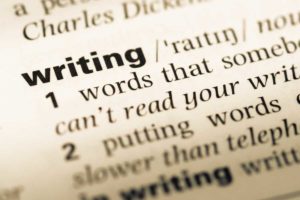It’s time to fess up: I used to be a pedant. My online Oxford English Dictionary defines a pedant as ‘a person who is excessively concerned with minor details and rules or with displaying academic learning’.
There was a time before I actually learned how to proofread and edit professionally that I got a little too much pleasure in finding errors or breaches of grammar ‘rules’ all around me: on shop signage, newspaper articles, correspondence and published books.
I even paused from time to time during bedtime stories with my children to point out why something in a book was ‘wrong’ or ‘right’. One out of three displayed interest; the others did not appreciate the interruption. I’m not surprised. Who would want their journey to the magical world of Narnia interrupted by a mini-lecture on C.S. Lewis’s correct use of ‘presently’?
I fancied myself as someone who would be a good proofreader, but while I may have had an eye for spotting many of the things a good proofreader or editor ought to spot, my understanding of what the job entailed was narrow. It was all very well to spot ‘traffic core’ in place of ‘traffic corps’ in the newspaper, or ‘buisness’ in promotional material that came through the letter box, or even the overflow of italic into punctuation or spaces after italic text.
But my focus was very much on catching errors. When I decided to become a proofreader and editor, I even chose a name for my business that reflected this focus: ‘Dot Your Eyes Editing and Proofreading’, from the expression ‘Dot your “i”s and cross your “t”s’. As time went on and I started studying and practising the skills of proofreading and editing, I began to regret the rush I had been in to name my business.
The Dot Your Eyes owl began to look too much like a bird of prey waiting to swoop down on a victim. I know I may have been overthinking. After all, the owl is also a symbol of wisdom and learning. But as I became more experienced in proofreading and editing, I was more drawn to the metaphor of editor as midwife, with the editor using their expertise to support the writer in bringing their writing to the world. Caring, encouraging, guiding, supporting, trusting, accommodating, even hand-holding seemed better descriptions of what I was actually doing.
That’s not to say that accuracy and precision are not important. Nor is to say that it’s wrong for an editor or proofreader to smile or occasionally tut at a slip they encounter. Some errors are funny, and some just shouldn’t happen in professionally produced text. But pedantry should not be a dominant trait.
Over the past few years, two of the many novels I have read contain what I would consider a surprising number of errors, and as an editor I can see how the errors might have happened, even if I’m surprised they were missed. But the novels were good, with engaging characters and plots that made reading them a worthwhile and enriching experience. In fact, they would rank among the top five in any list of ‘favourite’ books I have read in recent years.
Ten years ago, I might have put those novels aside, frustrated at the errors. Now I can see what I would have missed had I done so. Ten years ago, I might have named the books. I have no intention of doing that now. It’s not that my standards have slipped or that I do not value precision. But pedantry is not appealing, and I hope I have shed it.
I offered a little Irish in my first blog post. Here’s another snippet of Irish, appropriate for the topic: Níl saoí gan locht (No wise person is without fault); phonetically (in a ‘thereabouts’ way, as Irish vowels have subtle tones that are difficult to write phonetically): neel see gone lukth.



